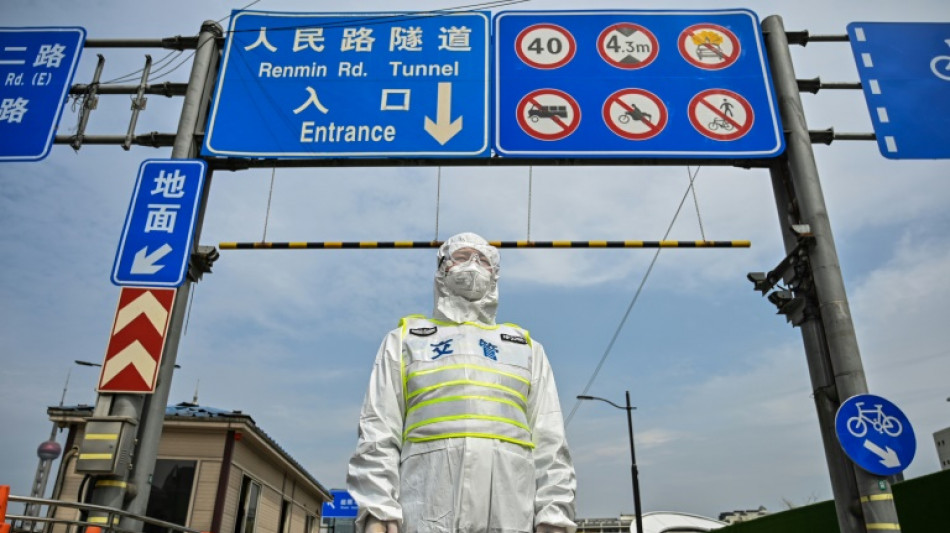
-
 Gstaad gives O'Brien record 21st Breeders' Cup win
Gstaad gives O'Brien record 21st Breeders' Cup win
-
After the tears, anger on Rio's blood-stained streets

-
 Sinner boosts number one bid in Paris, to face Zverev in semis
Sinner boosts number one bid in Paris, to face Zverev in semis
-
Springer back in Toronto lineup as Blue Jays try to close out Dodgers

-
 Nationals make Butera MLB's youngest manager since 1972
Nationals make Butera MLB's youngest manager since 1972
-
Guirassy lifts Dortmund past Augsburg ahead of Man City clash

-
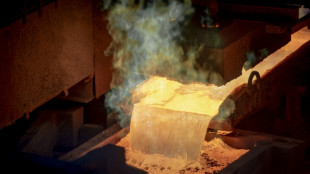 G7 says it's 'serious' about confronting China's critical mineral dominance
G7 says it's 'serious' about confronting China's critical mineral dominance
-
NFL fines Ravens $100,000 over Jackson injury status report

-
 NBA refs to start using headsets on Saturday
NBA refs to start using headsets on Saturday
-
Trump says Christians in Nigeria face 'existential threat'
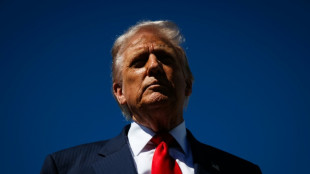
-
 French-Turkish actor Tcheky Karyo dies at 72
French-Turkish actor Tcheky Karyo dies at 72
-
Food stamps, the bulwark against hunger for over 40 mn Americans
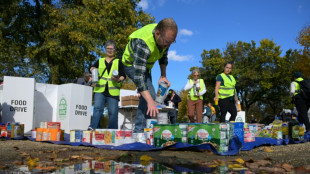
-
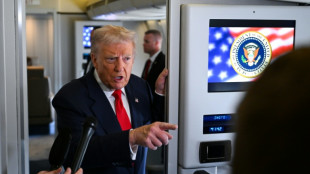 Trump keeps world guessing with shock nuclear test order
Trump keeps world guessing with shock nuclear test order
-
Wall Street stocks rebound on Amazon, Apple earnings

-
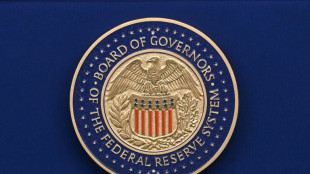 US Fed official backed rate pause because inflation 'too high'
US Fed official backed rate pause because inflation 'too high'
-
Prayers and anthems: welcome to the Trump-era Kennedy Center
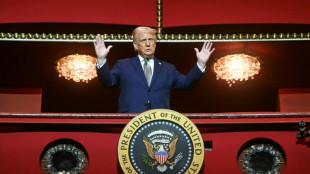
-
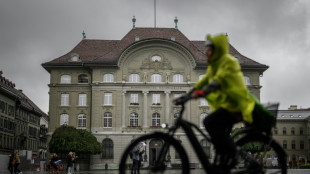 Swiss central bank profits boosted by gold price surge
Swiss central bank profits boosted by gold price surge
-
Sinner beats Shelton to boost number one bid in Paris

-
 French court jails Bulgarians for up to four years for Holocaust memorial defacement
French court jails Bulgarians for up to four years for Holocaust memorial defacement
-
Profits dip at ExxonMobil, Chevron on lower crude prices
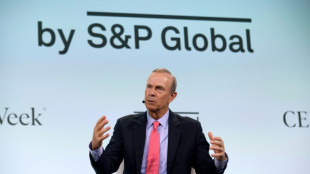
-
 Ashraf and Mirza skittle South Africa as Pakistan win 2nd T20
Ashraf and Mirza skittle South Africa as Pakistan win 2nd T20
-
2,000 trucks stuck in Belarus after Lithuania closes border: association
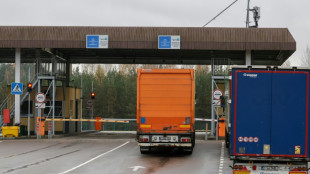
-
 French lawmakers reject wealth tax proposal in budget debate
French lawmakers reject wealth tax proposal in budget debate
-
Premier League blames European expansion for lack of Boxing Day games

-
 Bublik sets up Auger-Aliassime semi-final at Paris Masters
Bublik sets up Auger-Aliassime semi-final at Paris Masters
-
World's most expensive coffee goes on sale in Dubai at $1,000 a cup

-
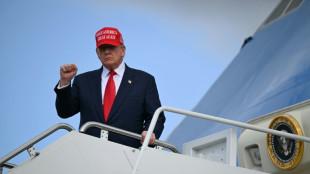 Trump stirs global tensions, confusion with nuclear test order
Trump stirs global tensions, confusion with nuclear test order
-
Panic across US as health insurance costs set to surge

-
 Court eases ban on Russian lugers but Olympic hopes on thin ice
Court eases ban on Russian lugers but Olympic hopes on thin ice
-
England captain Itoje targets Autumn Nations clean sweep

-
 Calmer Sabalenka sets sights on WTA Finals crown
Calmer Sabalenka sets sights on WTA Finals crown
-
Spurs boosted by Romero return for Chelsea clash

-
 Sudan's RSF claims arrests as UN warns of 'horrendous' atrocities in Darfur
Sudan's RSF claims arrests as UN warns of 'horrendous' atrocities in Darfur
-
US says 'non-market' tactics needed to counter China's rare earth dominance
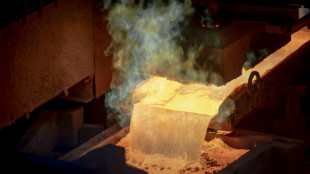
-
 China sends youngest astronaut, mice to space station
China sends youngest astronaut, mice to space station
-
From adored prince to outcast, Andrew's years-long fall from grace

-
 Rodri return fuels Guardiola belief in Man City title challenge
Rodri return fuels Guardiola belief in Man City title challenge
-
China holds send-off ceremony for space station astronauts

-
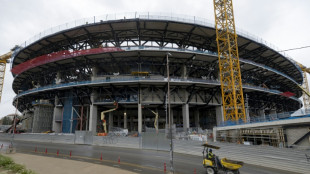 Barcelona to show off unfinished Camp Nou with public training session
Barcelona to show off unfinished Camp Nou with public training session
-
Turkish court jails 11 for life over deadly hotel inferno
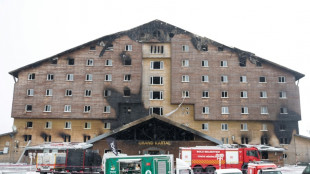
-
 Auger-Aliassime ends Vacherot run to reach Paris Masters semis
Auger-Aliassime ends Vacherot run to reach Paris Masters semis
-
Australia captain Wilson denies Wallabies use 'dangerous' breakdown tactics

-
 'Populists can be beaten': Dutch centrist Jetten claims election win
'Populists can be beaten': Dutch centrist Jetten claims election win
-
China's suspension of rare earth controls applies to EU: official
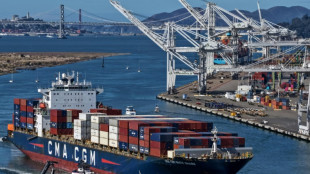
-
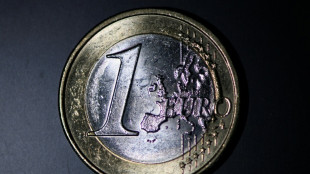 Italy complains about strong euro, urges ECB to cut rates
Italy complains about strong euro, urges ECB to cut rates
-
Louvre to get anti-ramming barriers by year end: minister

-
 Wall Street bounces on Amazon, Apple earnings
Wall Street bounces on Amazon, Apple earnings
-
AI giants turn to massive debt to finance tech race

-
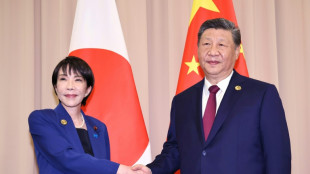 Japan PM says raised 'serious concerns' with Xi on South China Sea, Xinjiang
Japan PM says raised 'serious concerns' with Xi on South China Sea, Xinjiang
-
Shein set to open first physical store in Paris


China's pursuit of zero Covid driving expats away
Colin Chan spent more than a decade building a life in China, but enduring ever-changing Covid rules and five weeks of quarantine convinced the Singaporean that it was time to leave.
China's reluctance to budge on its strict zero-Covid policy is hastening the departure of expats from the world's second-largest economy, with business groups warning that unpredictable regulations were driving foreigners away.
When Chan returned to China from Singapore at the end of February, he was prepared for a long quarantine in Shanghai before he could head home to Beijing -- direct international flights to the capital are vastly reduced because of Covid.
But within days of reaching Beijing, he was told to stay at home for another two weeks, with a device installed on his door that sounded an alarm if it was opened.
"Restrictions seemed to be changing all the time," said Chan, who left China this month after completing these back-to-back quarantines.
He is among a wave of expats who have left, or are considering leaving China.
Over 80 percent of companies surveyed by the American Chamber of Commerce last month said China's virus policies had hit their ability to attract or retain foreign staff.
And the British Chamber said Wednesday that business risk was "at the highest level seen since 2020" when the virus was spreading rapidly in China during the early phase of the pandemic.
China's strategy of snap lockdowns, strict travel curbs and lengthy quarantines largely kept the virus at bay in the first two years of the Covid crisis, and allowed people to maintain a semblance of normal life.
But the fast-spreading Omicron variant shook that approach, as authorities scrambled to contain outbreaks with a rapidly changing mosaic of curbs that tested even the most seasoned expats' resolve.
More than a third of the firms surveyed by the American Chamber in March said their foreign staff had been reduced by at least 10 percent because of Covid curbs since the beginning of the pandemic.
- 'Crazy direction' -
Nowhere is this more evident than in Shanghai, whose 25 million residents are seething under a weeks-long lockdown that has seen food shortages, scattered protests and a stream of online vitriol.
The cosmopolitan economic powerhouse boasts a large overseas community of around 164,000 according to census data released last year. They work in a range of industries, from tech and finance to teachers at international schools.
But there are signs that even the hardiest of them may decide to leave.
One longtime British resident in Shanghai told AFP they planned to repatriate over worries that the latest lockdown marked the beginning of a "really crazy direction" in virus policies.
"Zero-Covid is like a belief now, a really fervent belief," they added, requesting anonymity as they had not informed their employer of their plans.
"It doesn't really matter that Covid's not that serious (now)... We have to get to zero."
Lockdown measures "will leave their marks in the long run", cautioned Jens Hildebrandt of the German Chamber of Commerce's North China branch.
Already, tight entry controls mean some multinationals have struggled for months to bring in new specialists as others leave.
This is also adding to supply chain struggles.
In a recent letter to China's State Council seen by AFP, the European Chamber warned that Omicron poses challenges that seemingly cannot be overcome with "the old toolbox of mass testing and isolation".
"The social and economic costs... to achieve this are rapidly mounting," the letter said.
"This is also having an unfortunate impact on China's image to the rest of the world."
Representatives of foreign business groups met with Commerce Minister Wang Wentao last week to raise problems that companies are facing, but it remains unclear if a swift easing of measures is forthcoming.
- 'Complete disaster' -
Chinese President Xi Jinping told the Davos-like Boao Forum on Thursday that "arduous efforts" are still needed to control the virus.
The Communist Party says its pandemic response has helped avert the public health crises seen in other countries.
But it has also left many exhausted.
Shanghai's lockdown has been a "complete disaster", said Rory Grimes, 40, who has lived in China for nine years.
The British education consultant has been sleeping on a makeshift bed for days since testing positive for the virus.
He is staying in a school classroom that has been converted into a mass quarantine facility.
"You don't feel like you're coming somewhere to be treated... There are no medical facilities here," he told AFP.
"It's about (Covid) targets rather than about logic anymore."
I.Meyer--BTB



